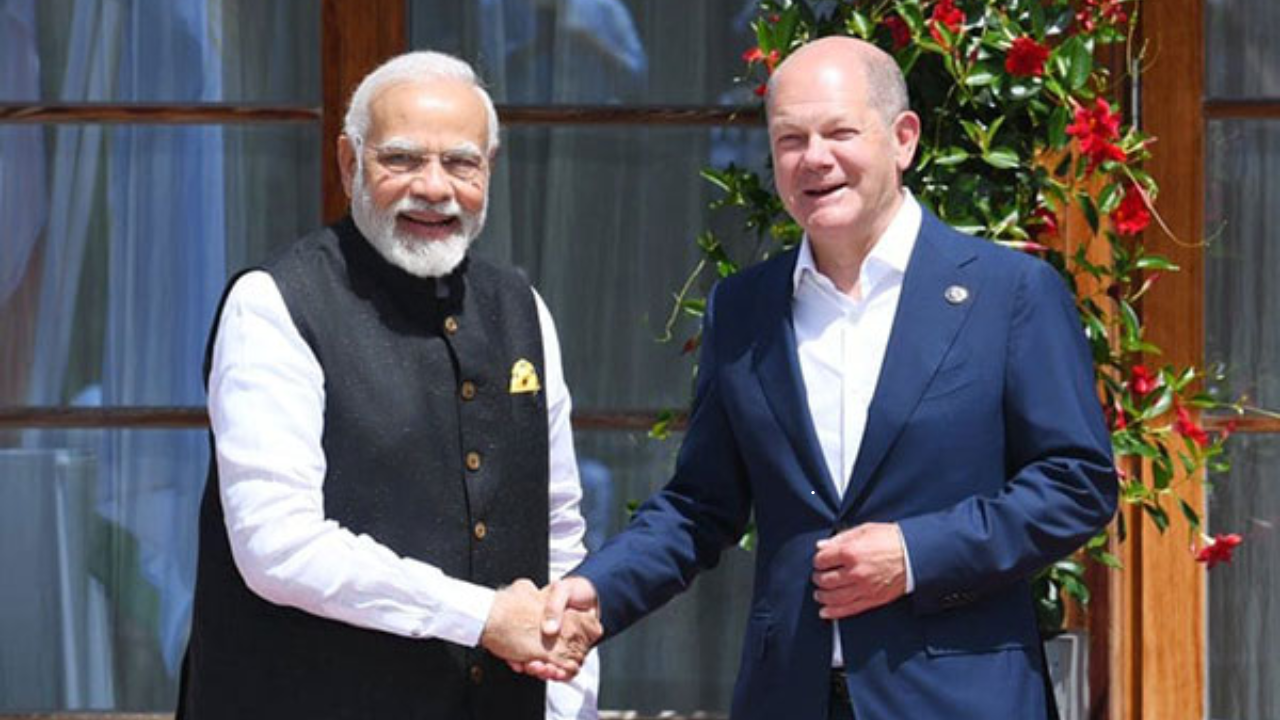
New Delhi: German Chancellor Olaf Scholz’s visit to India for the 7th Indo-German Intergovernmental Consultations highlights the deepening partnership between the two nations in various sectors, with a significant focus on skills development, economic collaboration, and sustainability. Coinciding with Scholz’s visit, the Asia-Pacific Conference of German Business (APK), currently taking place in New Delhi, has underscored Germany’s growing interest in India as a strategic partner in Asia.
Just before the Chancellor’s visit, the release of a new focus paper on India by Germany emphasizes the country’s crucial role in Germany’s global strategy for trade, investment, and education. This paper outlines India's potential to become a hub for green technologies, AI, and sustainable industries, paving the way for future collaborative projects in key sectors.
Bridging Skills for the Future of Work
Tied to this strategic collaboration, the fifth edition of the GSDP Conversation Series on skills development took place at IIT Delhi. The event, hosted by the German Embassy in New Delhi, focused on preparing India’s workforce for the future, particularly through upskilling and technological integration. The GSDP (Green and Sustainable Development Partnership) continues to be a cornerstone of Indo-German cooperation, and Chancellor Scholz’s visit has further elevated this collaboration, reinforcing commitments to digitalization and sustainable growth.
Dr. Bärbel Kofler, (part of the Chancellor’s delegation) Parliamentary State Secretary from the German Federal Ministry for Economic Cooperation and Development (BMZ), addressed the importance of combining education, technology, and sustainability. " At the end of the day, we need joint engagement to really reach the sustainable development goals. Everything is interlinked—education, gender equality, sustainability, and technology. If we combine these efforts, we will be able to achieve our common global goals like the SDGs," she said, reflecting on the intergovernmental talks where sustainability, mobility, and skill-building initiatives were key topics.
Technology and AI as Key Enablers
The discussions delved into the role of digital transformation and AI in shaping future skillsets. Dr. Nina Smidt, Director of Siemens Stiftung, emphasized the transformative potential of technology: "With the use of technology and open educational resources, there’s much more room for scaling, with an ambitious goal of reaching 60,000 students in the first two years." She added, "The digital era, particularly AI, is a reality. The question now is how to provide access to it equitably."
Prof. Chetan Arora from IIT Delhi expanded on AI’s disruptive potential in India, especially in sectors like education and healthcare: "AI has the potential to help India scale services such as education and healthcare, where we may have limited resources but a large population to serve. AI can assist us in providing personalized education and quality healthcare to everyone."
Germany’s New Focus on India
With Germany placing renewed focus on India as a strategic partner, the GSDP Conversation Series aligns with the objectives laid out in the newly released focus paper on India from the German government. This document highlights India’s pivotal role in Germany’s broader strategy for cooperation, particularly in areas of sustainability, skills development, and digitalization. Both the GSDP event and the APK Conference in Delhi demonstrate Germany’s commitment to fostering deeper ties with India across these critical sectors.

